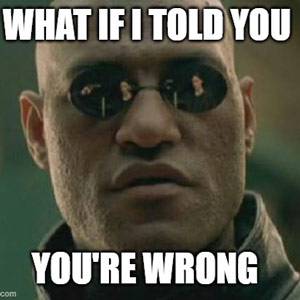Grasp the CAP: The CAP Quiz
QuestionHow do you call the type of pesticides that are used on the field to kill wild plants and weeds?

Insecticides

Herbicides

Fungicides
Herbicides (e.g. glyphosate) are used in agriculture to fight and control weeds. According to EU law, pesticides may only be used as a last resort. However, they are often sprayed routinely. This practice has devastating consequences for biodiversity: together with the wild plants, also many insects, birds and mammals disappear from the fields.
QuestionWhat is the name of Rachel Carson´s famous book that brought environmental concerns on pesticide use on the public agenda?

Wicked winter

Sinful summer

Silent spring
Carson´s best-seller Silent spring was published in 1962 and exposes the misuse of synthetic pesticides and their consequences for humans and nature. The book greatly inspired the environmental movement and policy initiatives in the U.S.A and beyond. The title Silent spring comments on the absence of insects and their buzzing sound. In fact, intensive pesticide use is a major driver of the worldwide disappearing of honey-bees.
QuestionHow many people lose their lives due to a severe intoxication by pesticides per year worldwide?

1.000

11.000

8.000
Every year, pesticides lead to approximately 11.000 deaths among farmers and field workers. Furthermore, there are an estimated number of 385 million cases of acute pesticide poisonings. Symptoms are (among others): skin irritation, nausea, headache, vomiting, diarrhea or loss of consciousness. Pesticide poisonings thus affect 44% of the world´s population working in agriculture, most of them in the Global South. Recent studies also identify the exposure to certain pesticides as a cause for non-communicable diseases like Parkinson´s disease.
QuestionWhat is the most likely way to absorb pesticides?

Ingestion (e.g. eating contaminated food)

Dermal absorption (through skin contact)

Inhalation (breathing air with pesticide particles)
The most common route of pesticide exposure is the absorption through the skin and mainly affects farmers or field workers. However, our bodies may adsorb pesticides by all of the three pathways mentioned above. Once arrived in the body, some traces of the pesticides are incorporated in our organism. Through the analysis of our hair, for example, one can obtain detailed information on the personal exposure to pesticides.
QuestionDespite the public pressure for more sustainability in agriculture, the EU did not decrease its pesticide use in the last years. How much pesticides are sold in Europe every year?

350.000 tons

80.000 tons

200.000 tons
Between 2011 and 2020, the sales of pesticides in the EU remained stable at 350 000 tons per year. The four countries France, Germany, Italy and Spain together account for about two thirds of the total volume. According to the EU´s Farm to Fork strategy, the pesticide use in the EU shall be reduced by 50% until 2030. However, this target is not yet legally binding and challenged by national governments and the agrochemical lobby.
QuestionHow did the worldwide pesticide usage change over the last 30 years?

Pesticide use remained stable

Pesticide use increased massively

Pesticide use decreased slightly
From 1990 and 2018, the worldwide pesticide use increased massively and almost doubled from 2.3 to 4.1 million tons. Likewise, evidence shows that pesticides became more toxic for invertebrates (e.g. insects) over the last 25 years. Thus, the toxicity and environmental risk of the applied pesticide did increase, too.
QuestionHow much of the global pesticide market is shared among the agro-chemical companies Syngenta/ChemChina, Bayer, Corteva, and BASF?

70% of the global pesticide market

90% of the global pesticide market

40% of the global pesticide market
The pesticide market is concentrated in the hands of a few multi-national companies: Syngenta/ChemChina, Bayer, Corteva, and BASF account together for 70% of the global pesticide sales. This toxic business is extremely lucrative: In 2019, Bayer generated 841 million US-Dollar alone in the sales of glyphosate. Tragically, the societal costs for the negative consequences of pesticide use (e.g. public health impacts or pollution of groundwater) are by far outweighing the sector´s profits.
QuestionWhat is the name of the successful European Citizens´ Initiative (ECI) that was signed by more than 1.2 million people to demand the end of synthetic pesticides?

Save bees and farmers!

End the Pesticide Age!

Right2Nature
The ECI Save Bees and Farmers! is an alliance that unites over 140 environmental NGOs, farmer and beekeeper organisations as well as scientific institutions. Together, they demand policies that guarantee an ambitious reduction and prepare the phase-out of pesticide use across Europe.
Learn more: https://www.savebeesandfarmers.eu/eng/
You scored:
Thanks for playing!
Want to find out more about the use and risks of pesticides? Check out our key facts and infographic.